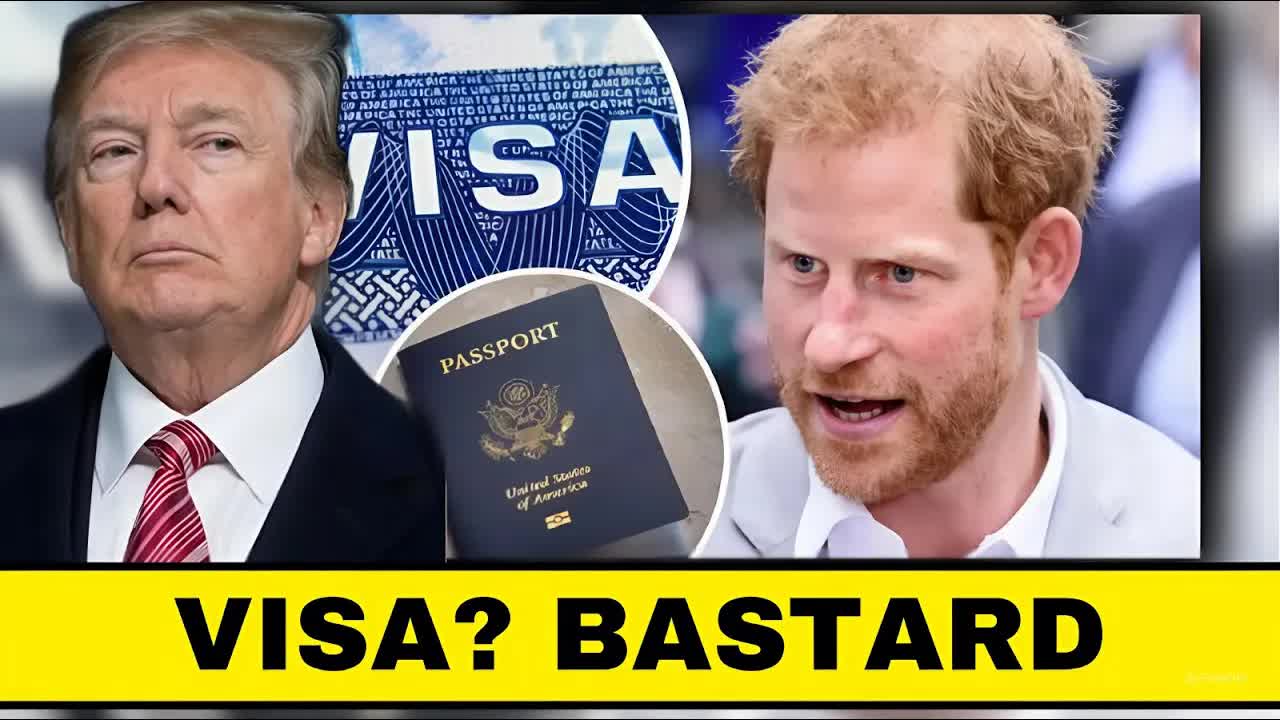Must Read
Prince Harry’s Visa Status Sparks Controversy Over Alleged Special Treatment
The ongoing debate surrounding Prince Harry's visa status in the United States has captured public attention, raising questions about fairness and transparency.
Recently, the U.S. government opted not to disclose specific details about Harry's immigration situation, citing privacy rights similar to those upheld for former President Donald Trump.
This decision has ignited discussions about the privileges afforded to high-profile individuals.
The Heritage Foundation, a conservative think tank, has taken legal action against the Department of Homeland Security (DHS) to uncover information regarding Prince Harry's visa type.
Their inquiry stems from concerns that he may have received preferential treatment, particularly in light of his candid admissions of past drug use in his memoir, “Spare.”
DHS attorney John Bardo argued that just as Trump's privacy was protected, so too should Harry's be safeguarded, especially since he has never held a public office in the U.S.
Speculation is rife that Prince Harry might be utilizing an A1 head of state visa, a classification typically reserved for official dignitaries.
This raises eyebrows, as Harry no longer performs royal duties and lacks any formal role in the U.S.
If he is indeed benefiting from such a visa, it could be perceived as an egregious example of privilege and misuse of status.
The implications of Harry's visa situation extend beyond mere immigration policy; they touch on broader societal issues regarding the treatment of influential figures.
If the American public perceives that Harry and his wife, Meghan Markle, are receiving special treatment, it could lead to significant backlash, potentially reshaping public sentiment towards immigration policies.
Meghan Markle's influence on Prince Harry's public image cannot be overlooked.
Since joining the royal family, she has attracted considerable media scrutiny, often overshadowing other royal members.
While her fresh perspective has invigorated discussions around royal traditions, it has simultaneously sparked debates about the royal family's relevance in contemporary society.
Critics argue that Meghan's Hollywood background has introduced a different dynamic to the royal family, leading to accusations of “Hollywoodizing” an institution traditionally known for its discretion.
This shift has transformed Harry from a beloved prince into a polarizing figure, with many attributing this change to Meghan's impact.
Looking ahead, the couple's future in the United States could be precarious, especially if Donald Trump were to reclaim the presidency.
Trump's hardline stance on immigration could exacerbate scrutiny over Harry and Meghan's residency, potentially complicating their philanthropic endeavors and public image further.
Recent comments from Trump suggest that Harry and Meghan may not enjoy any special privileges, which could amplify public criticism.
The couple's financial independence and lucrative media contracts have already drawn ire, painting them as individuals who have distanced themselves from royal responsibilities for personal gain.
Harry's pursuit of reinstating his security measures has also stirred controversy.
His actions seem to reflect a desire to retain the benefits associated with royal status without fulfilling the accompanying responsibilities.
Critics argue that this approach places an unfair burden on taxpayers, as Harry seeks the protection typically granted to individuals at high risk due to their public profile.
The discourse around Harry's visa status and security arrangements raises important questions about accountability.
If he has indeed received preferential treatment despite his past drug use, the public's right to scrutinize such decisions becomes paramount.
The contradiction of the government citing privacy concerns on Harry's behalf, while he actively engages in legal battles over his privacy, adds another layer of complexity to the situation.
As conversations surrounding Harry's immigration status evolve, the implications of his actions and the perceptions of favoritism will likely continue to resonate.
The unfolding narrative serves as a reminder of the delicate balance between privilege and accountability, especially for those in the public eye.








































